The Third International Day of Conscience
The Third International Day of Conscience
A Peace Ship Guided by Conscience and Powered by Love Sets Sail to a Bright Future
April 5, 2022 marked the third International Day of Conscience. As the pandemic, the war, and other disasters are threatening humanity’s survival, it is urgent to awaken people’s conscience to resolve conflicts with love and wisdom and promote a culture of peace. Since April 1, the Federation of World Peace and Love (FOWPAL) has organized a series of activities with various organizations around the world to observe the International Day of Conscience, inspiring people to take more positive actions and inject more good energy into the Earth. FOWPAL held two forums on April 5 and April 6 on its ICDAY platform, where visionaries shared their thoughts on the topic of conscience.
FOWPAL received many congratulatory messages and warm wishes from leaders all over the world, including, H.E. Mr. António Guterres, Secretary-General of the United Nations; H.E. Mr. Stjepan Mesić, former President of Croatia; H.E. Mr. Iván Duque Márquez, President of Colombia; the Hon. Mia Amor Mottley, Prime Minister of Barbados; H.E. Mrs. Katrín Jakobsdóttir, Prime Minister of Iceland; H.E. Mr. Micheál Martin, Taoiseach of Ireland; H.E. Mr. António Costa, Prime Minister of Portugal; H.E. Mr. Robert Rae, Ambassador of Canada to the UN; H.E. Ms. Simonetta Sommaruga, Head for the Department of Environment, Transport, Energy, and Communications of Switzerland; H.E. Ms. Anna Ekström, Minister for Education of Sweden; H.E. Mr. Leo Varadkar, Tánaiste and Minister for Enterprise, Trade and Employment of Ireland; H.E. Mr. Abdallah Al-Mouallimi, Ambassador of Saudi Arabia to the UN; H.E. Mr. Ingrida Šimonytė, Prime Minister of Lithuania; and H.E. Mr. Talat Xhaferi, President of the Assembly of the Republic of North Macedonia.
Dr. Hong, Tao-Tze, president of FOWPAL, delivered welcome remarks, emphasizing, “The fate of the world is in the hands of every citizen of the world, and the conscience of every individual is the key to turning the situation around.” “A culture of conscience without borders, prejudice, or selfishness is the salvation for the ark of the Earth and humanity. The focus of the International Day of Conscience is to inspire everyone’s exercise of conscience. Time is the fairest of all, so let’s make good use of our limited time on Earth to do good deeds and accumulate blessings and virtues for ourselves and the world while cooperating with one another to help ourselves and the world,” he added.
Dr. Abdullatif bin Rashid Al-Zayani, Minister of Foreign Affairs of Bahrain, commended King Hamad bin Isa Al Khalifa for fostering the culture of tolerance, peace, and coexistence, enhancing dialogue and mutual understanding among all religions, cultures, and civilizations, as well as consolidating global solidarity and partnership to safeguard regional and global security and peace for sustainable development. Minister Al-Zayani expressed his pride in the celebration of the International Day of Conscience, which was adopted by the United Nations General Assembly on July 25, 2019 based on the draft resolution presented by the Kingdom of Bahrain under the leadership of the late Prime Minister, Prince Khalifa bin Salman Al Khalifa.
The creation of the International Day of Conscience was made possible by the collective efforts of many permanent missions to the UN and NGOs. One of the key initiators was the Permanent Mission of Kiribati to the UN. Ambassador of Kiribati to the UN Teburoro Tito explained the origin of this UN-designated day: “Why 5 April? It was on 5 April, 2018, when FOWPAL together with the Permanent Mission of Kiribati to the United Nations and the Association of World Citizens jointly organized the Peace and Love Conference in the United Nations Headquarters, in which representatives from 22 permanent missions to the United Nations shared their views and agreed that more cooperation was needed at all levels in the pursuit of a more peaceful and loving world for all.”
At the end of the conference on April 5, 2018, Ambassador Tito encouraged other ambassadors to work together to propose a peace resolution at a future session of the UN General Assembly. Thereafter, FOWPAL worked with the permanent missions of Bahrain, Kiribati, and Equatorial Guinea, and held several meetings with various nations’ permanent missions to the United Nations on a draft resolution titled “Promoting the Culture of Peace with Love and Conscience.” In July 2019, the UN General Assembly adopted the draft resolution submitted by the Kingdom of Bahrain, declaring April 5 as the International Day of Conscience.
During FOWPAL’s observance of the third International Day of Conscience, Ambassador Tito stated, “I would therefore like to congratulate and thank the president of FOWPAL, Dr. Hong, Tao-Tze, and all the members of FOWPAL for their many years of hard work and for their unwavering commitment in the promotion of world peace and love through conscience.”
Other visionary leaders also shared their thoughts in support of the third International Day of Conscience. Vice Prime Minister of Mauritius Leela Devi Dookun Luchoomun stated that the Universal Declaration of Human Rights specifically mentions conscience in articles 1 and 18. Today, it is more important than ever to place the issue of conscience at the center of the discussion, she said, adding, “We must nurture conscience that is humanity centric, for it is conscience that stops us in our out tracks and forestalls a tendency to commit outrages against others. Conscience makes us draw a fine line in the sand, clearly acting as a gatekeeper demonstrating what is permissible and what’s not. It pays to have such a conscience that watches over our actions that enables us not to cross the red line that safeguards our humanity and raises a drawbridge that keeps us safe from insane actions.”
Amb. Roxanna de los Santos de Piantini, Alternate Ambassador of the Dominican Republic to the UN in Vienna, stated, “Moral conscience is one that tells us if the actions or attitudes we take are correct or incorrect. As such, moral conscience is based on the set of moral values held by the individual. Values are what guide the behavior and actions of people, and whoever is governed by them tries to act well, correctly, in accordance with their principles.” “Moral conscience helps us as a guide in making decisions in the labor and social spheres, among others.”
Former President of Montenegro Filip Vujanović stated, “Nowadays, humanity is facing complex challenges which we cannot overcome without the values of consciousness, solidarity, understanding, mutual respect, and sharing.” His Excellency also said, “We should use this opportunity to call for an immediate ceasefire, around the globe.” “We need to use dialogue as a primary tool for solving problems. It is easier to exchange opinions than victims of war. We need to understand each other more, learn from our past, and understand that our differences aren’t our weaknesses but our strengths. All of us shall raise our voices to stop the wars. Our consciousness is asking us to do that. Let’s listen to it.”
Justice Anthony Thomas Aquinas Carmona, former President of Trinidad and Tobago, stated, “A leader guided by his conscience will always do the right thing because his conscience tells him what is the right thing to do. A conscience-driven leadership will be steeped in service rather than the trappings of power. Doing the right thing comes easy when the conscience is alive and well.” “The voice of conscience in each and every one of us must never wane or be subdued by institutional oppression and injustice. It is the rudder that justly guides the ship of state and is our personal moral compass.”
Dr. Rosalía Arteaga Serrano, former President of Ecuador, firmly believes that conscience and education are highly correlated, adding, “We must be conscious about what we can do to improve ourselves, our behaviors, how we can interact with the world, with our environment, how we can be responsible to close the big gap that this in between the people who have a lot, and the people who doesn’t have anything.” She also expressed her support to the people that are suffering and urged global leaders to take more responsibility and be mindful of the problems that their actions can cause to humanity.
Dr. Akkan Suver, president of the Marmara Group Foundation, pointed out some pressing problems facing the world and stated, “We have to patiently encourage and teach people to be conscientious.” “Humanity can only get rid of these difficult and meaningless war environments with conscience. Respecting the right of the righteous can only be possible by being conscientious. Making the world livable can also happen with conscience. If there was respect for the concept of conscience, could the strong deprive the weak of their right to live? Of course they couldn’t. But it is up to us to move their conscience. Let’s raise our voice more today and let the world feel the presence of conscience.”
Justice Duba Dukpa, chief justice of the High Court of Bhutan, reminded people of the impermanence of life and stated, “Our happiness does not come from the material things we have. Happiness hormones are generated when we love and help others. It is a win-win situation. Others feel happy because of our love and affection to them, and we feel happy because the chemicals/hormones generated by showing love and affection makes us happy. When everybody is happy, there is peace in the community, country and the world.”
Justice Geoffrey A. Henderson, a former judge at the International Criminal Court in the Hague, stated, “In this challenging period, individually and collectively, we all have an important role to play in creating a peaceful world where, despite our many differences, every person must receive equal respect, treatment, and enjoy the same fundamental rights. One of the important ways of developing such a culture of peace and love is to cultivate and develop empathy in our consciousness. Genuine empathy to others will go a long way in undermining violence and conflict wherever it exists. As we celebrate the International Day of Conscience, my hope is that we all develop empathy in our conscience.”
In addition to these visionary leaders, other peace promoters from around the world also shared their messages in honor of the occasion. At the end of the forums, FOWPAL presented a song titled “A Prayer for Peace,” praying for an end to the war and people’s suffering and hoping that all global citizens will follow their conscience and work together to usher in a peaceful and bright future!
Source: FOWPAL
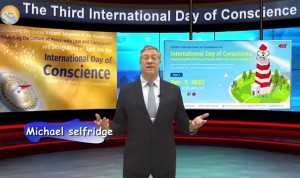
April 5, 2022 marked the third International Day of Conscience. FOWPAL held two forums on April 5 and April 6 on its ICDAY platform, where visionaries shared their thoughts on the topic of conscience.
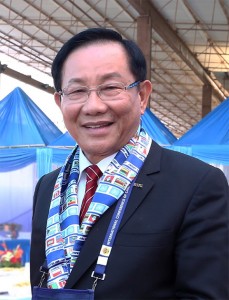
Dr. Hong, Tao-Tze, president of FOWPAL, delivered welcome remarks, emphasizing, “The fate of the world is in the hands of every citizen of the world, and the conscience of every individual is the key to turning the situation around.”
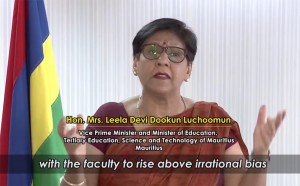
Vice Prime Minister of Mauritius Leela Devi Dookun Luchoomun stated that it is more important than ever to discuss the issue of conscience today.
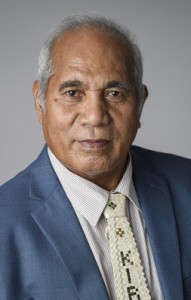
Ambassador of Kiribati to the UN Teburoro Tito explained the origin of the International Day of Conscience as well as congratulated and thanked Dr. Hong, Tao-Tze and FOWPAL for their hard work in promoting world peace and love with conscience for years.
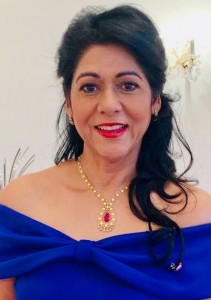
Amb. Roxanna de los Santos de Piantini, Alternate Ambassador of the Dominican Republic to the UN in Vienna, stated, “Moral conscience helps us as a guide in making decisions in the labor and social spheres, among others.”
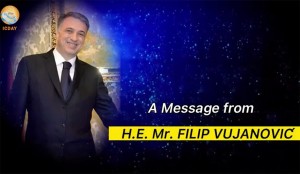
Former President of Montenegro Filip Vujanović stated, “Nowadays, humanity is facing complex challenges which we cannot overcome without the values of consciousness, solidarity, understanding, mutual respect, and sharing.”
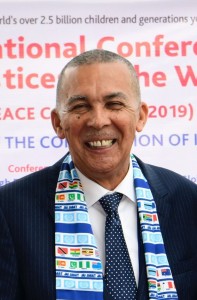
Justice Anthony Thomas Aquinas Carmona, former President of Trinidad and Tobago, stated that conscience is the “rudder that justly guides the ship of state and is our personal moral compass.”
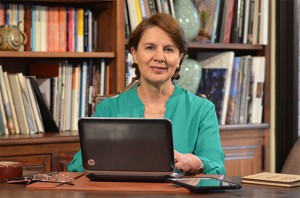
Former President of Ecuador Rosalía Serrano firmly believes that conscience and education are highly correlated and urged global leaders to take more responsibility and be mindful of the problems that their actions can cause to humanity.
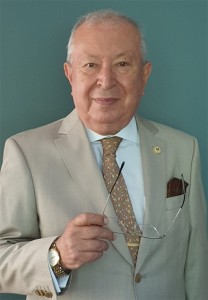
Dr. Akkan Suver, president of the Marmara Group Foundation, pointed out some pressing problems facing the world and stated, “Let’s raise our voice more today and let the world feel the presence of conscience.”
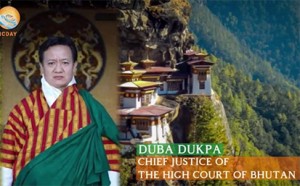
Justice Duba Dukpa, chief justice of the High Court of Bhutan, stated, “Our happiness does not come from the material things we have. Happiness hormones are generated when we love and help others.”
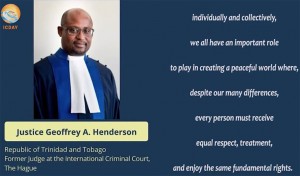
Justice Geoffrey A. Henderson, a former judge at the International Criminal Court in the Hague, stated, “As we celebrate the International Day of Conscience, my hope is that we all develop empathy in our conscience.”



